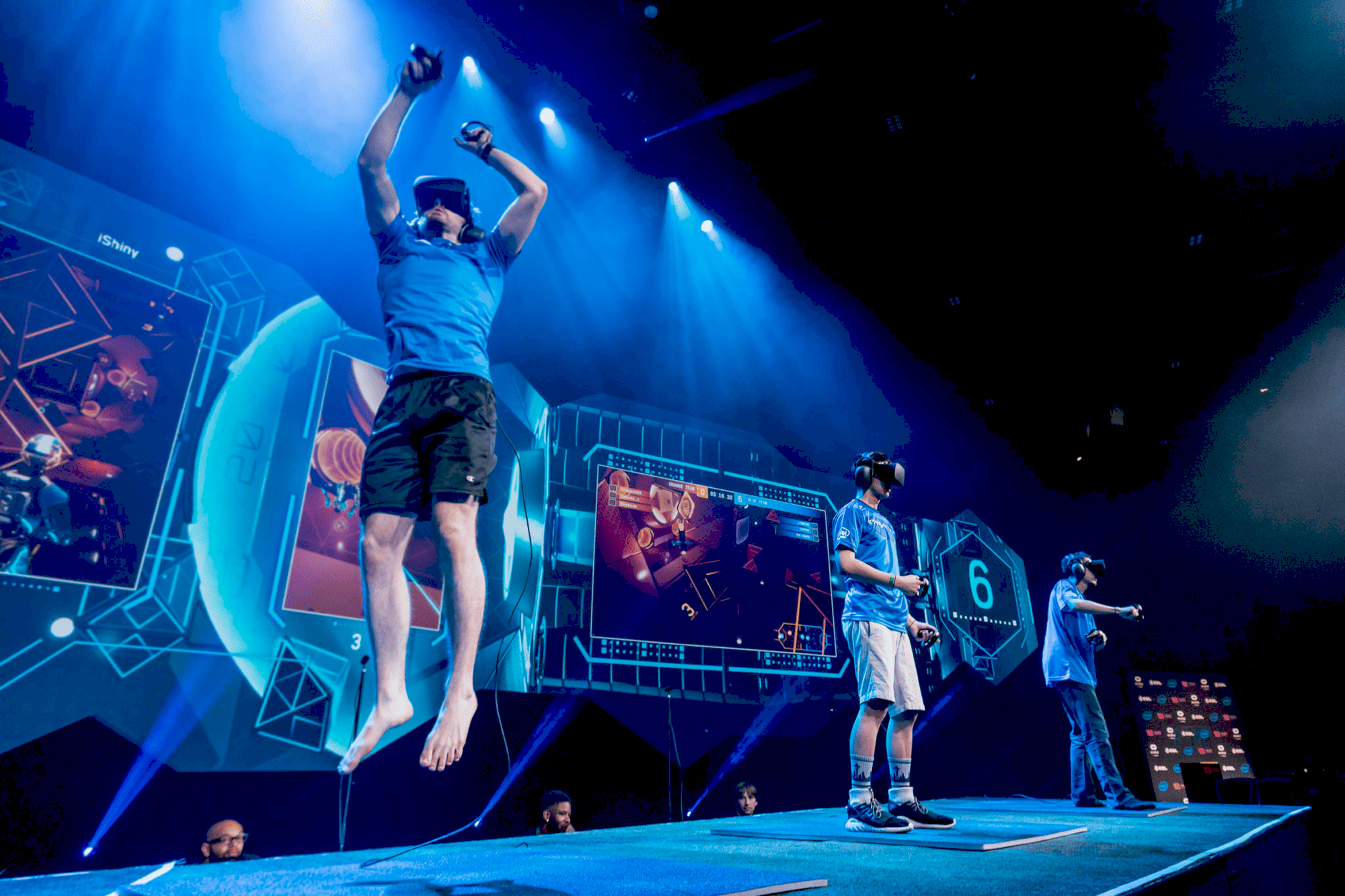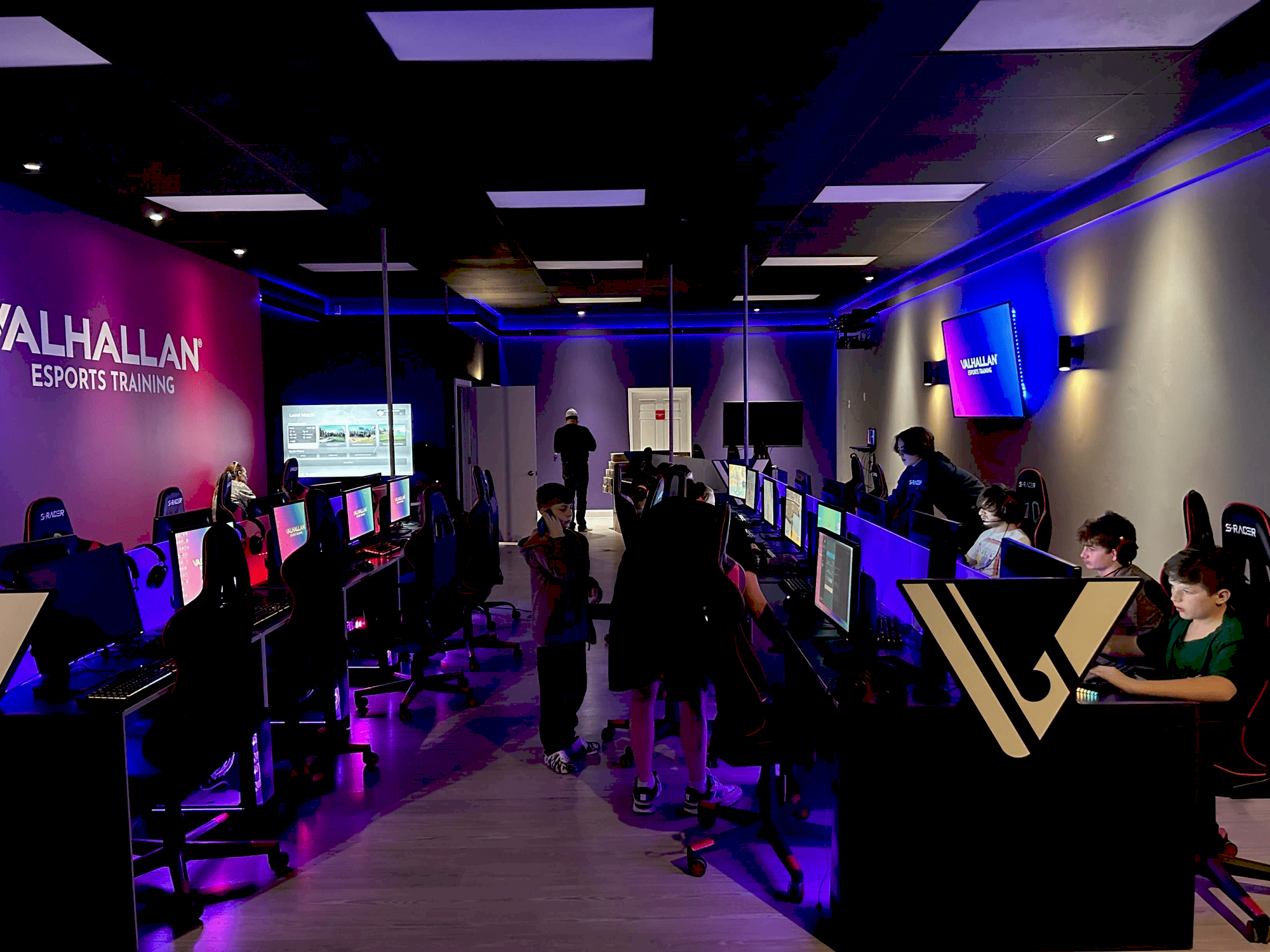Introduction: Defining the VR Esports Landscape
VR esports career is emerging as a dynamic frontier in the digital competition realm. The evolution of virtual reality has transformed not only gaming itself, but also the professional pathways available for enthusiasts. This new era of competitive gaming integrates advanced VR technology, immersive gameplay mechanics, and robust training systems that support a VR esports career in unprecedented ways. As virtual arenas become increasingly sophisticated, aspiring gamers are presented with a myriad of professional opportunities, ranging from joining elite teams to participating in how to start a professional VR esports career programs designed by dedicated VR competitive gaming training programs.
The expanding professional landscape of VR esports career offers tangible pathways to success. It acts as a bridge between casual gaming and structured competition, providing detailed guidance on how to build skills, secure sponsorship, and enter the circuit of professional VR esports career opportunities. Established tournaments, such as the best VR esports tournaments for pros, serve both as arenas for high-level contest and as references for the standards of professional play. Furthermore, industry analyses and platforms like ESPN provide rigorous insights into the growth and viability of these careers.
This introduction outlines a pathway that goes beyond gaming for leisure, delving into the structured and strategic methodology required for a VR esports career. The following points encapsulate key themes:
- Definition and scope of VR esports career
- Technological evolution introducing cutting-edge VR competitive gaming training programs
- Examples of how to start a professional VR esports career steps
In addition, the framework of a VR esports career is based on a solid understanding of team dynamics and the tactical strategies essential for becoming a pro. The pathway to becoming a pro gamer in VR involves rigorous practice, participation in structured tournaments, and leveraging both mentorship and sponsorship opportunities. A sequential approach to training can be outlined as follows:
- Understanding VR hardware and software intricacies
- Engaging in structured practice sessions under expert guidance
- Participating in recognized tournaments to gain exposure
The amalgamation of these elements underpins the promise of a thriving VR esports career. Industry reports and case studies from reputed sources bolster the credibility of this model, making it a viable and attractive option for the new generation of professional gamers. In summary, the introduction to this topic sets the stage for a comprehensive exploration, highlighting a blend of technology, strategy, and opportunity that defines the modern competitive gaming arena.
Deep Dive: Exploring Key Components of VR Esports Career
Training Methods in VR Esports Career
VR esports career demands a systematic approach to skill enhancement and performance optimization. VR esports career training centers and VR competitive gaming training programs provide structured methodologies that include rigorous drills, simulated combat scenarios, and performance analysis. Professionals in a VR esports career typically engage in daily practice routines that blend individual skill development with team-based scrimmages. The training encompasses areas such as reaction speed, spatial awareness, strategy execution, and in-game decision-making. Training methods include:
- Structured practice sessions with progressive difficulty levels.
- Simulated match environments to mimic real tournament pressure.
- Video analysis and feedback sessions to refine tactical choices.
- Specialized modules focusing on hardware mastery and VR interface optimization.
This approach ensures that each participant in a VR esports career hones their skills to meet the competitive demands of modern tournaments. Coaches emphasize consistency and adaptability in training, with regular benchmarks and performance reviews. The integration of state-of-the-art VR equipment and tailored training drills helps aspiring professionals to understand the nuances of gameplay, preparing them firmly on the pathway to becoming a pro gamer in VR. Many successful players attribute their breakthroughs to these immersive VR competitive gaming training programs. Additionally, frequent simulated competitions encourage efficient stress management and rapid decision-making. A detailed focus on these training routines is crucial for anyone aspiring to start a professional VR esports career.
Tactical Strategies in VR Esports Career
VR esports career tactical strategies revolve around understanding game mechanics, map control, and timing precision. In a VR esports career, players must develop and execute strategies that are flexible enough to adapt to the unpredictable nature of virtual arenas. Tactical planning involves thorough pre-match studies, simulated war games, and post-match debriefings. A comprehensive grasp of team play and individual performance is fundamental to mastering these tactics. Tactical strategy development includes:
- Pre-game analysis of maps and potential opponent maneuvers.
- Mid-game adjustments based on real-time developments.
- Strategic positioning and communication drills during practice sessions.
- Post-game review sessions to enhance future strategic decisions.
In every competitive setting, executing well-planned tactics is essential for a sustainable VR esports career. Consistent use of reflective tactics, such as replay analysis and scenario simulations, has elevated the professional VR esports career opportunities. With a keen focus on numerical analysis and statistical feedback, teams are better prepared to employ tactical variations. Each tactical session reinforces fundamental skills, with at least four mentions of the key objective: securing a lasting VR esports career. These tactical strategies, reinforced by rigorous practice and informed decision-making, lay the groundwork for success in high-pressure environments.
Major Tournaments in VR Esports Career
VR esports career advancement is strongly linked to participation in major tournaments that set industry benchmarks. In a VR esports career, competitions such as the best VR esports tournaments for pros are structured to assess skill, endurance, and innovation. These tournaments are characterized by high-intensity matches, where teams and individual players must demonstrate strategic rigor and technical mastery. Significant tournaments gather a global audience and offer extensive prize pools, which substantially elevate the professional VR esports career profile.
- International VR championship events.
- Regional qualifiers that lead to world-stage competitions.
- Seasonal leagues and invitational challenges.
- Exhibition matches that offer skill showcases and networking opportunities.
Participants in these events often engage in months-long preparatory sessions to fine-tune their techniques and strategies. A solid emphasis is placed on understanding game updates and opponent tactics, ensuring that every encounter is a learning opportunity. Established tournaments also serve as a platform for securing sponsorships and enhancing a VR esports career trajectory. Credible sources such as ESPN provide data-driven insights and analysis on tournament performances. Consistent success in these tournaments solidifies the pathway to becoming a pro gamer in VR and attracts potential sponsors. Such competitive environments ensure that every competitor in a VR esports career has the chance to refine their approach and gain recognition from professional networks.
Team Dynamics in VR Esports Career
VR esports career success depends substantially on efficient team dynamics. In a VR esports career setting, individual proficiency must be seamlessly integrated with collective coordination. Effective team dynamics entail clear communication, role distribution, and mutual trust among teammates. In these environments, every member’s expertise contributes to overall performance. Successful teams conduct regular strategy sessions, where emphasis is placed on understanding individual strengths and compensating for weaknesses.
- Regular team drills to synchronize gameplay strategies.
- Peer-to-peer feedback sessions to optimize performance.
- Role-specific training to ensure clarity in responsibilities.
- Conflict resolution methods to maintain optimal team spirit.
The integration of advanced communication tools and real-time performance analytics has redefined team dynamics in a VR esports career. Teams leverage digital platforms to review match footage and conduct tactical enhancements. This coordinated approach ensures that every player contributes effectively to the joint objective of excelling in competitive arenas. Successful case studies indicate that groups with strong internal communication record significant improvements in decision-making speed and strategic executions. Teams that foster such environments tend to secure better rankings, sponsorship opportunities, and a robust professional VR esports career reputation. This coordinated framework is a critical element for long-term success and professional growth.
Sponsorship and Prize Pool Structures in VR Esports Career
VR esports career growth is substantially boosted by effective sponsorship and prize pool structures. In a VR esports career, securing sponsors is a critical milestone that validates skill, marketability, and potential for future success. Sponsorship deals not only provide the financial backing required to sustain training and travel but also enhance a team’s or player’s profile in the competitive scene. Organized prize pool structures in tournaments ensure that every participant in a VR esports career is rewarded fairly based on their performance. Key elements include:
- Tiered sponsorship models that cater to individual needs.
- Transparent prize distribution systems that uphold competitive integrity.
- Brand partnerships which align with the ethos of a VR esports career.
- Investment in marketing and media to boost visibility.
Leading organizations have collaborated with global brands to create robust sponsorship frameworks. Analysis of tournament data from verified industry reports highlights that teams with stable sponsorships tend to maintain consistent performance levels. Additionally, prize pool structures are regularly adjusted based on market trends and sponsorship contributions, ensuring sustainable support for participants. A well-defined sponsorship strategy, when combined with strong team dynamics and tactical agility, paves the way for rewarding and long-lasting VR esports career opportunities. By leveraging strategic partnerships and a balanced prize pool, players on the pathway to becoming a pro gamer in VR can aim for high-caliber success and enhanced professional prospects. The structural integrity of these frameworks ensures continuous support, cementing the future of the VR esports career landscape.
Conclusion: Summarizing Pathways, Success Stories, Skills Development, and Future Prospects
VR esports career remains a transformative avenue in digital competition, merging technical expertise with strategic gameplay to create lucrative professional opportunities. This conclusion encapsulates the comprehensive journey that encompasses training methods, tactical strategies, and the rigorous framework of professional gaming. Throughout this article, insights on how to start a professional VR esports career have been detailed, further highlighting the pathway to becoming a pro gamer in VR through immersive VR competitive gaming training programs and participation in the best VR esports tournaments for pros.
A multitude of success stories illustrate that persistent skill development and effective team coordination are the backbones of a thriving VR esports career. Notable athletes have demonstrated that disciplined practice routines, combined with innovative tactics and transparent sponsorship and prize pool structures, are essential for unlocking professional VR esports career opportunities. Reliable data from sources such as Esports Insider reinforce that steady improvement and adapting to market trends are crucial for long-term success.
Key Takeaways
- Consistent training and structured practice underpin a successful VR esports career.
- Developing tactical strategies and engaging actively in professional circuits provide measurable benefits.
- Success stories from established professionals illustrate the real pathway to becoming a pro gamer in VR.
- Continuous adaptation and learning are vital in evolving VR competitive gaming training programs.
- Monitoring industry trends and integrating reliable insights leads to robust professional VR esports career opportunities.
A detailed review of current methods emphasizes that the upcoming future holds vast potential for individuals ready to embrace both technological innovations and competitive spirit. A structured roadmap involving regular practice, specialized coaching sessions, and participation in major tournaments has proven essential for crafting a professional VR esports career. In summary, the journey not only involves skill enhancement but also strategic partnerships and mentorships which help consolidate a lasting career in the competitive VR arena.
Future Prospects
- Adoption of advanced VR technologies will further refine gameplay and training effectiveness.
- Growing global recognition of the field will increase professional VR esports career opportunities.
- Innovative sponsorship models and prize pool enhancements will support emerging talent.
- Expanding tournaments and international competitions will shape the pathway to becoming a pro gamer in VR.
In conclusion, a VR esports career is built upon a solid foundation of continuous learning, team synergy, and a strategic approach to competition. The insights provided herein serve as a definitive guide for aspiring professionals. The synthesis of real-world examples, practical advice, and industry benchmarks makes this conclusion an indispensable resource for those determined to excel in the evolving arena of esports.




